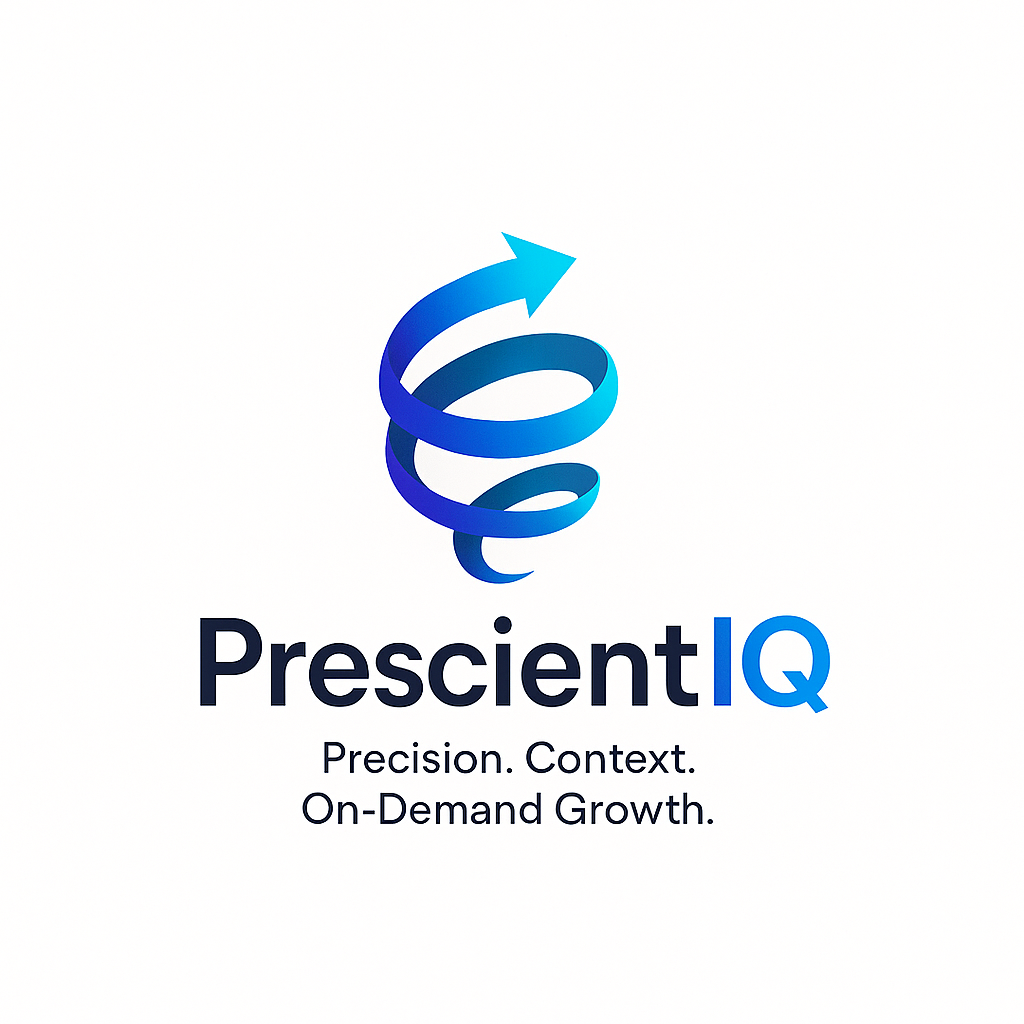Tactical CRM in Sales Management
Unveiling the Power of Tactical CRM in Sales Management
Navigating the Complexities of Modern Sales Management
Sales managers often face daunting challenges in today’s rapidly evolving business landscape. The primary hurdle lies in managing customer relationships while simultaneously achieving sales targets.
This daunting task is further complicated by the pressing need to stay ahead in a fiercely competitive market. Sales managers need a solution that simplifies their workflow and increases sales effectiveness.
The Solution: Tactical CRM as a Game-Changer
Enter Tactical Customer Relationship Management (CRM). This innovative approach to CRM is not just another tool in the arsenal of sales management; it’s a transformative strategy.
Tactical CRM transcends traditional methods by offering a more nuanced, agile, and results-oriented approach to managing customer relationships. It’s tailored to address the specific needs of sales managers, focusing on immediate, actionable strategies that yield tangible results.
The Anticipated Outcome: Enhanced Sales Performance and Customer Satisfaction
By adopting Tactical CRM, sales managers can expect a significant uptick in their sales performance. This is not just a speculative claim; it’s backed by the success stories of numerous organizations that have seen remarkable improvement in their sales metrics.
Tactical CRM’s impact extends beyond mere numbers; it elevates the quality of customer interactions, leading to heightened customer satisfaction and loyalty.
The Strategy: Implementing Tactical CRM for Optimal Results

Implementing Tactical CRM requires a strategic approach. It involves carefully analyzing the sales process and identifying areas where Tactical CRM can be seamlessly integrated to enhance efficiency and effectiveness. Sales managers must also leverage the advanced analytics and insights that Tactical CRM provides to make informed decisions. This strategic implementation paves the way for a more dynamic, responsive, and successful sales management process.
Embracing the Future of Sales Management
Tactical CRM is not just a fleeting trend; it’s the future of sales management. By embracing this approach, sales managers can revolutionize their strategies and achieve unprecedented success.
As we delve deeper into Tactical CRM, it becomes clear that it is more than a tool—it’s a pivotal element in the evolution of sales management, promising a more efficient, effective, and profitable future.
Tactical CRM is evolving rapidly, and several intriguing statistics highlight its growing impact and usage in modern sales environments:
- Surprising Gap in CRM Knowledge Among Salespeople: About 22% of salespeople need to be made aware of CRM, indicating a significant knowledge gap in the industry despite the widespread adoption of CRM technologies.
- Desired Features in CRM: The most requested features in CRM software include contact management, interaction tracking, scheduling, and pipeline monitoring. Customers also seek features like central databases and email marketing integrations.
- Salesforce’s Market Share: Salesforce holds approximately 20% of the overall CRM market, indicating its strong presence and influence in the CRM sector.
- CRM’s Role in Improving Sales Processes: 87% of sales professionals report that using a CRM system has enhanced their sales process.
- Impact on Sales Cycle and Administrative Tasks: CRM technology can reduce the sales cycle by 8-14% and automate administrative tasks, allowing sales reps to focus more on generating and converting leads.
- Enhanced Revenue and Conversion Rates: CRM technology can increase individual sales representative revenue by 41%, leading to a 23% higher lead conversion rate.
- Customer Experience and Retention: 74% of organizations using CRM applications report improved customer experience, and 59% say CRM applications have helped them improve customer retention.
- Reduced Lead Cost and Increased Sales Accuracy: CRM can reduce lead costs by 23% and improve sales forecasting accuracy by 32%.
- Market Growth and Investment Trends: The CRM market size surpassed $47 billion in 2022 and is expected to continue growing, with a compound annual growth rate of 1.7% projected until 2025.
- Mobile CRM and Sales Quotas: Sales reps using mobile CRM meet their sales quotas 66% of the time, compared to 22% for those not using mobile CRM, highlighting the importance of mobile accessibility in modern CRM solutions.
These statistics demonstrate the expanding scope and critical role of CRM in sales and customer relationship management. There is increasing emphasis on mobile accessibility, enhanced features, and a strong focus on improving sales processes and customer experience.
The Intricacies of Tactical CRM: Navigating the Challenges for Sales Managers
1. Balancing Personalization with Efficiency
In Tactical CRM, one of the most pressing challenges for sales managers is balancing personalization and efficiency.
With CRM systems offering vast amounts of data, there’s a temptation to dive deep into highly personalized customer interactions. However, this can often come at the cost of efficiency.
Subtle Art of Balance: Sales managers must navigate the delicate act of using CRM data to tailor interactions without getting bogged down in details that don’t contribute to sales goals.
Overcoming Information Overload: The wealth of data can be overwhelming, leading to analysis paralysis. Managers need to develop strategies to filter and prioritize information effectively.
Crafting Personalized Strategies: Personalization is key in customer relations, but it must be executed to align with broader sales strategies and objectives.
2. Integrating Tactical CRM with Existing Processes
Another hurdle is integrating Tactical CRM tools seamlessly into existing sales processes. This integration can be complex, particularly in organizations with established sales methods and legacy systems.
Ensuring Compatibility: Compatibility issues between new CRM tools and existing systems can lead to significant disruptions in sales processes.
Training and Adoption Challenges: Sales teams must be adequately trained to use new CRM tools effectively, which can be time-consuming and costly.
Measuring Impact on Sales Processes: It’s crucial to continuously monitor CRM integration’s impact on sales processes to ensure that it’s driving the desired results.
3. Evolving Customer Expectations in the Digital Age
As digital transformation reshapes the business landscape, customer expectations are evolving rapidly. Sales managers using Tactical CRM must adapt to these changes to stay competitive.
Keeping Pace with Digital Trends: Sales managers must adapt to the latest digital trends and customer behaviors to remain relevant and effective.
Understanding Changing Customer Needs: CRM strategies must adapt as customer needs evolve. This requires constant monitoring and analysis of customer data.
Innovating Customer Interactions: Sales managers must find innovative ways to engage customers, leveraging CRM data to create unique and memorable interactions.
Embracing the Challenges for Future Success
While Tactical CRM presents these challenges, embracing and overcoming them is key to leveraging its full potential.
Sales managers who successfully navigate these obstacles can harness CRM’s power to drive sales, improve customer relationships, and achieve long-term success.
This journey of adaptation and learning in Tactical CRM is not just a challenge; it’s an opportunity to redefine sales management in the digital age.
Unlocking the Potential of Tactical CRM for Sales Managers
Who is Tactical CRM For? Tactical CRM is primarily designed for sales managers at the forefront of customer engagement and sales strategy execution.
It’s a tool for those who seek to blend technology with sales acumen, offering a nuanced understanding of customer needs and behaviors.
From retail to technology, sales managers in diverse sectors find Tactical CRM instrumental in elevating their sales strategies.
The Target Audience: Sales managers keen on leveraging data-driven insights for enhanced sales performance. Adaptable and Agile: Those who thrive in dynamic market conditions always seek to outperform their competition.
What is Tactical CRM?
Tactical CRM stands for Tactical Customer Relationship Management. It’s more than just software; it’s a strategic approach to managing customer relationships. Tactical CRM focuses on actionable insights, helping sales managers make informed decisions that directly impact sales performance and customer satisfaction.
More Than Software: It’s a strategic toolkit for insightful customer engagement. Action-Driven Approach: Focused on providing actionable insights for immediate impact.
Where Does Tactical CRM Come Into Play?
Tactical CRM is most effective in environments where customer interaction data can be translated into actionable strategies.
It’s used in office settings, remote work environments, and increasingly in mobile contexts. Its versatility allows sales managers to engage with it in various locations, at the office, during field sales, or while working from home.
Versatile Environments: From traditional office settings to dynamic field sales. Accessibility: It’s accessible anywhere, fitting seamlessly into modern, mobile professional lives.
When is Tactical CRM Most Beneficial?
Tactical CRM proves most beneficial in fast-paced sales environments where quick decision-making is crucial. It’s particularly valuable during sales planning, customer engagement, and post-sale analysis.
Tactical CRM becomes an indispensable tool for real-time insights and strategy adaptation in the ever-evolving digital marketplace, where customer preferences and market trends change rapidly.
Rapid Decision-Making: In scenarios requiring quick, informed decisions. Dynamic Marketplaces: Especially valuable in adapting to rapidly changing customer preferences and market trends.
Why Tactical CRM for Sales Managers?
The core of Tactical CRM’s appeal lies in its ability to enhance sales performance and customer satisfaction.
It provides a competitive edge for sales managers by offering deep insights into customer behaviors and preferences, enabling personalized customer experiences. It’s about staying ahead by understanding and anticipating customer needs better than the competition.
Competitive Edge: Provides deep insights for a more personalized customer experience. Staying Ahead: Helps understand and anticipate customer needs, offering a significant advantage over competitors.
A Strategic Asset for Modern Sales Management
Tactical CRM is a strategic asset for sales managers, designed to navigate the complexities of modern sales environments.
It offers a blend of data-driven insights and strategic flexibility, making it an essential tool for sales managers aiming to excel in today’s competitive marketplace.
By understanding who it’s for, what it is, where it’s used, when it’s most beneficial, and why it’s important, sales managers can harness the full potential of Tactical CRM to drive success and growth.
Exploring Tactical CRM: Three Transformative Use Cases
Use Case 1: Streamlining Lead Management
Before: Sales teams often grappled with the chaos of managing numerous leads, and tracking and nurturing leads became haphazard without a structured system, leading to missed opportunities and wasted resources.
After implementing tactical CRM to transform lead management, the system automatically categorizes leads based on engagement level, potential value, and conversion likelihood.
This prioritization helps sales teams focus their efforts where they matter most.
Benefit: The result is a more streamlined process, leading to higher conversion rates and a more efficient sales cycle. Sales teams can now identify high-potential leads quickly and allocate their resources more effectively.
Use Case 2: Enhancing Customer Engagement
Before: In tactical CRM, sales interactions were often generic and failed to resonate with customers. Sales teams needed help personalizing their approach, leading to lower engagement and customer satisfaction.
After: With Tactical CRM, sales managers gain access to detailed customer profiles, including past interactions, preferences, and purchase history. This enables them to tailor their communication and offers, creating more meaningful and personalized customer experiences.
Benefit: This targeted approach enhances customer satisfaction, loyalty, and repeat business. Sales teams can build stronger customer relationships, leading to long-term business growth.
Use Case 3: Optimizing Sales Strategy
Before: Sales strategies were often based on intuition rather than data; this approach, while sometimes successful, needed more consistency and was sometimes aligned with market trends or customer needs.
After: Tactical CRM provides sales managers with data-driven insights. They can analyze sales trends, customer feedback, and market dynamics to make strategic decisions. This leads to more effective sales strategies aligned with current market conditions and customer expectations.
Benefit: The impact is a more robust, adaptable sales strategy responsive to market changes and customer demands. Sales teams become more agile and are better positioned to capitalize on emerging opportunities.
A Game-Changer for Sales Management
Tactical CRM is not just a tool; it’s a game-changer in sales management. Streamlining lead management, enhancing customer engagement, and optimizing sales strategies empower sales teams to achieve new heights of efficiency and effectiveness.
These use cases illustrate a fraction of its potential, paving the way for sales managers to revolutionize their approach and drive unparalleled success.
Implementing Tactical CRM: A Step-by-Step Guide

Implementing Tactical CRM in your sales operations can be a game-changer, enhancing customer relationships and sales efficiency. However, the process requires careful planning and execution. Here’s a step-by-step guide to get you started.
Step 1: Assessing Your Sales Needs Understanding Your Requirements: Begin by evaluating your current sales processes. Identify the gaps and challenges in managing customer relationships and sales operations.
This assessment will help you select a CRM that best fits your needs. Setting Clear Objectives: Define clear objectives for what you want to achieve with Tactical CRM, such as improved lead management, better customer engagement, or more efficient sales reporting.
Step 2: Choosing the Right Tactical CRM Exploring Options: Research different CRM solutions available in the market. Look for features that align with your specific sales needs and objectives. Making an Informed Decision: Consider factors like ease of use, integration capabilities, scalability, and customer support when choosing your Tactical CRM system.
Step 3: Preparing for Implementation Data Preparation: Organize your existing customer data for migration to the new system. Ensure it is clean, updated, and structured. Team Involvement: Involve your sales team in the process. Their insights and buy-in are crucial for a successful implementation.
Step 4: Customizing and Integrating the CRM. Customization: Tailor the CRM to fit your sales processes. Customize fields, workflows, and dashboards to match your specific requirements. Integration: Integrate the CRM with other business tools and systems, such as email platforms, marketing software, and analytics tools. This ensures a seamless flow of information across different business functions.
Step 5: Training and Adoption Comprehensive Training: Conduct thorough training sessions for your sales team. Ensure they understand how to use the CRM effectively in their daily operations. Encouraging Adoption: Drive adoption through regular follow-ups and support. Address any challenges or resistance promptly to ensure smooth usage.
Step 6: Monitoring and Optimizing Performance Tracking: Regularly monitor how the CRM impacts your sales processes. Track metrics like lead conversion rates, customer engagement levels, and sales cycle duration. Continuous Improvement: Be open to making adjustments. Use feedback from your team and performance data to continually optimize CRM usage.
Leveraging Tactical CRM for Sales Success. Successfully implementing Tactical CRM can revolutionize your sales management, improving efficiency, enhancing customer relationships, and increasing revenue. These steps ensure a smooth transition to a more structured, data-driven sales approach. Remember, the key is not just in the implementation but also in ongoing optimization and adaptation to your evolving sales needs.
Tactical CRM: The Competitive Edge in Sales Management
In today’s dynamic business world, Tactical CRM emerges as a revolutionary tool, redefining the landscape of sales management.
This comprehensive overview encapsulates the essence of Tactical CRM, highlighting its potential to transform sales strategies and customer relationships. Let’s delve into the key aspects that give businesses a competitive advantage.
Revolutionizing Sales Processes: Tactical CRM is a strategic asset for sales managers. Its implementation begins with a thorough assessment of sales needs and objectives, leading to selecting a CRM system that aligns perfectly with business requirements.
This process ensures a tailored approach to managing customer relationships and sales operations, addressing specific challenges, and leveraging unique opportunities.
Customization and Integration: The power of Tactical CRM lies in its adaptability. Customizing the system to fit specific sales processes and integrating it with existing business tools creates a seamless operational flow. This customization ensures that every sales activity is optimized for maximum efficiency and effectiveness.
Empowering Teams for Success: Training and adoption are critical to leveraging Tactical CRM. Comprehensive training ensures that sales teams can harness the system’s full potential. Encouraging adoption and providing ongoing support cultivates a culture of continuous improvement and adaptability.
Enhanced Customer Engagement and Efficient Lead Management. The core strength of Tactical CRM is its ability to enhance customer engagement through personalized interactions and streamlined lead management.
Tactical CRM enables sales teams to create more meaningful and impactful customer experiences by offering detailed insights into customer behavior and preferences. This level of personalization boosts customer satisfaction and fosters loyalty and repeat business.
Data-Driven Decision Making: Tactical CRM transforms sales strategies with its data-driven insights. Sales managers can make informed decisions based on comprehensive analytics, aligning sales strategies with market trends and customer expectations.
This approach results in more effective and responsive sales tactics.
A Catalyst for Growth and Innovation: Tactical CRM is not just a tool for managing customer relationships; it’s a catalyst for business growth and innovation.
Businesses can stay ahead of market changes and customer demands by continuously monitoring and optimizing CRM performance. This optimization ensures that sales strategies remain dynamic and effective, adapting to the ever-evolving business landscape.
The Competitive Advantage: In summary, Tactical CRM provides businesses with a significant competitive advantage. Its ability to streamline sales processes, enhance customer engagement, and facilitate data-driven decision-making positions businesses for success. Sales teams become more agile, customer-centric, and equipped to meet the challenges of the modern marketplace.
Conclusion: Embracing the Future with Tactical CRM
Tactical CRM is more than a technological advancement; it’s a strategic approach to sales management.
As businesses navigate the complexities of the modern market, Tactical CRM is a beacon of innovation and efficiency.
Its implementation is not just a step towards improving sales processes; it’s a leap towards redefining the future of sales management, offering unparalleled competitive advantage and opportunities for growth.


